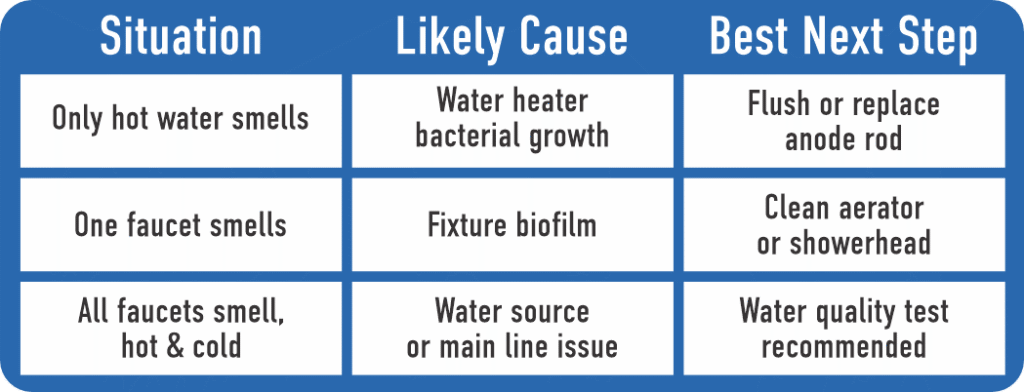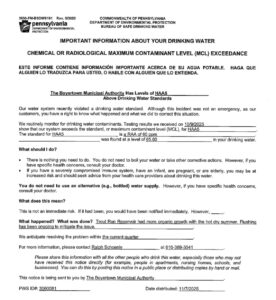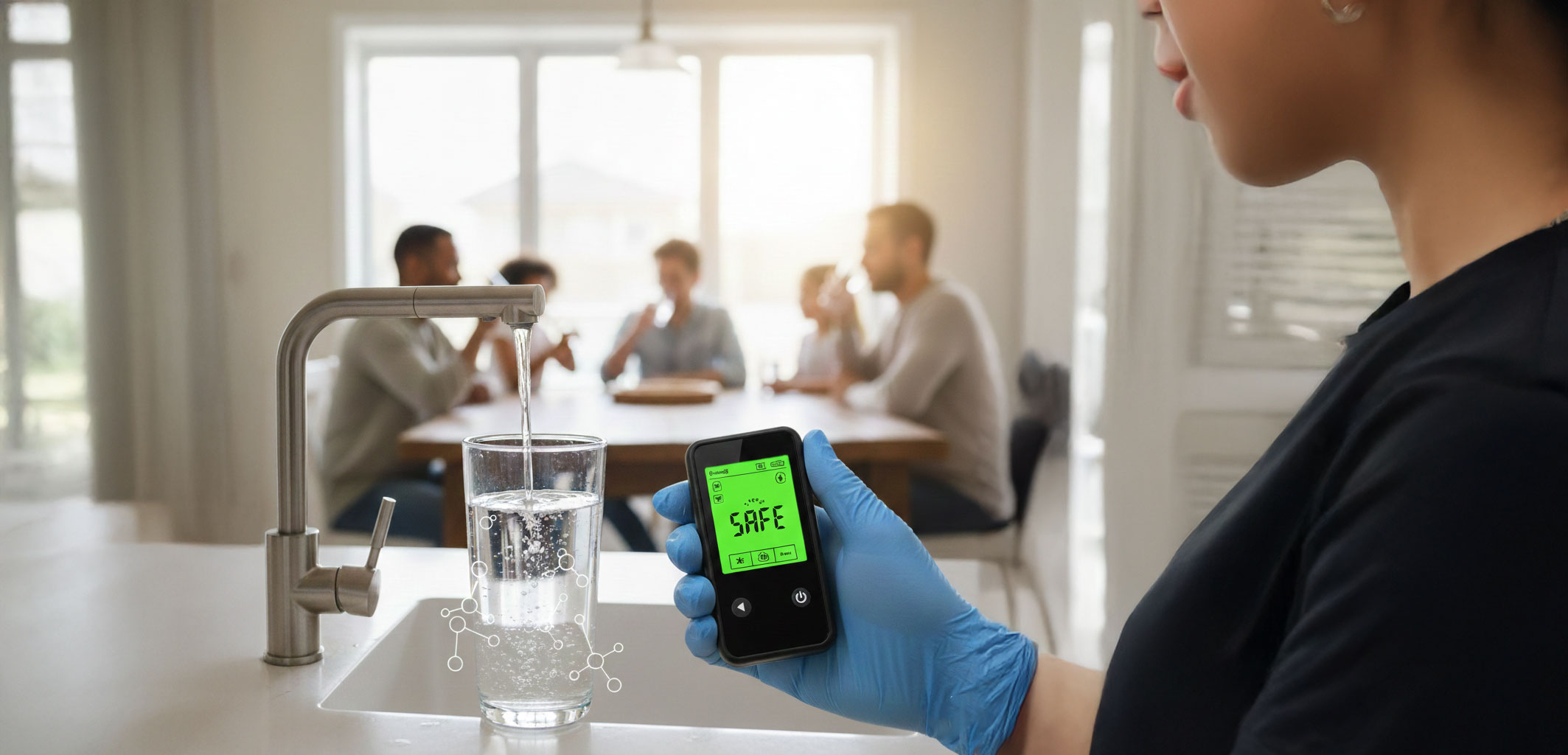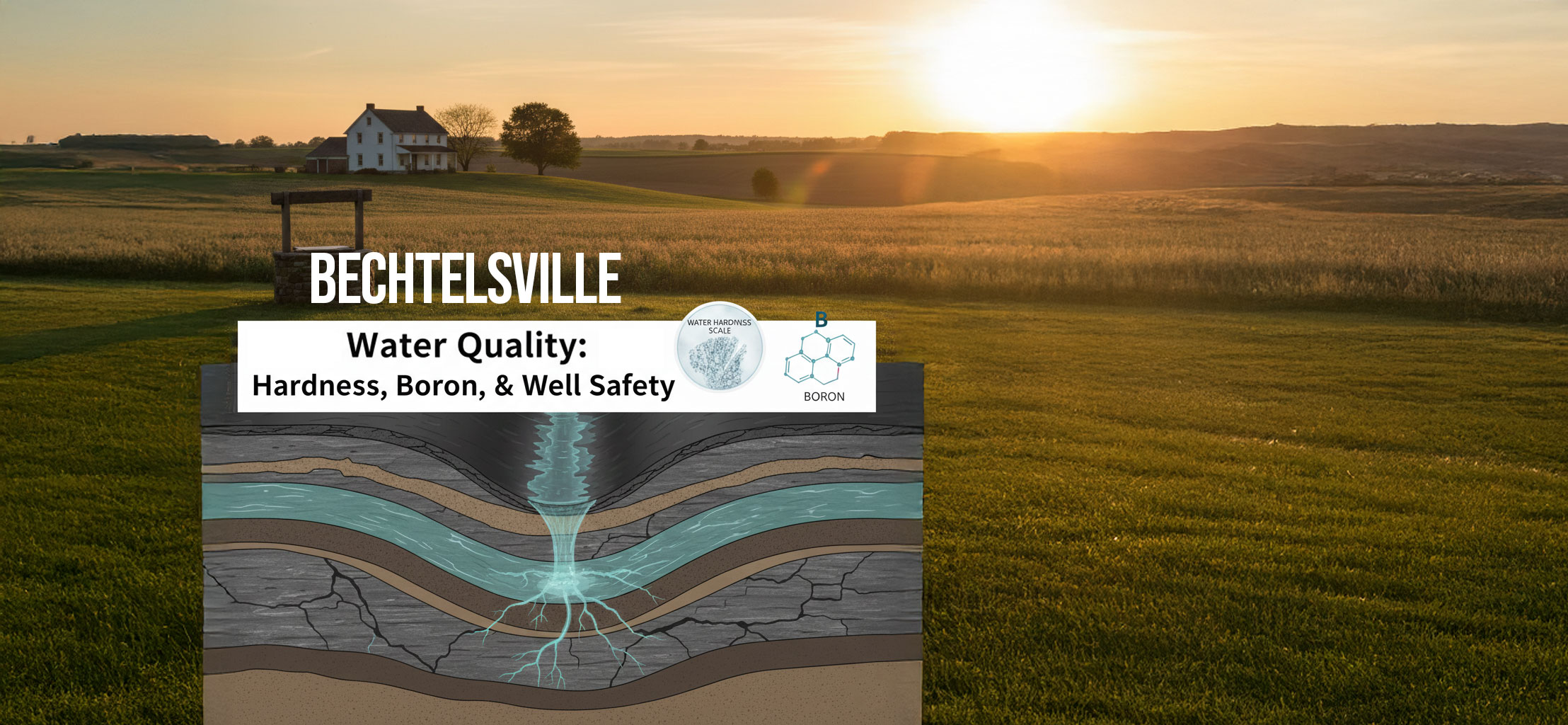Recently, several Boyertown residents have reported that their tap water has a musty or mildew-like smell. If you’ve noticed the same thing, you’re not alone and, fortunately, there are clear explanations and steps you can take to address it.
This article explains why this odor occurs, what it means for your home, and how to figure out where the smell is actually coming from.
What Causes the Mildew or Musty Smell?
A “mildew” smell in drinking water is usually described as earthy, damp, basement-like, or moldy. That smell typically comes from organic compounds in the water or from microbial growth somewhere in the plumbing system.
The United States Geological Survey notes that these musty odors are often caused by naturally occurring compounds like geosmin from decaying vegetation. These compounds are not usually harmful, but they are definitely noticeable.
Below are the four most common causes, listed in the order we see most frequently during home visits.
1. Organic Material in the Water Source
Boyertown receives public water from sources that can be affected seasonally, especially with temperature changes, heavy rainfall, or lake/reservoir turnover. When algae or plant material breaks down, it can create that earthy smell.
This does not necessarily mean the water is unsafe, but it can absolutely affect taste and odor. The Environmental Protection Agency helps you understand how to read your water report and explains strange odors in the water.
What you can do:
- Run cold water for 1–2 minutes to flush your line.
- Fill a clean glass and smell it away from the sink (to rule out drain odors).
If the glass still smells, the issue is likely in the water supply itself.
2. Bacterial Growth in the Water Heater (Hot Water Smell Only)
If you notice the smell only when running hot water, the cause is typically harmless bacteria in the water heater, not in the public supply.
This can happen if:
- The heater temperature is set below 120°F
- The home has been partially unused
- The anode rod encourages microbial activity
The University of Georgia has an informative article where you can learn all about strange smells from your water heater.
Solution:
- Turn your water heater temporarily to 140°F for 24 hours, then run hot water to flush. Warning! Water exceeding 120°F is very dangerous and can cause serious harm. You MUST install a thermostatic mixing valve to protect your family if the water inside the water heater exceeds this temperature.
- If the odor returns, the anode rod may need to be replaced.
We perform these services often in Boyertown and towns all across Berks and Montgomery Counties. It takes about 30–60 minutes onsite.
3. Biofilm Buildup in Faucets or Showerheads
Sometimes the water is fine, but the plumbing fixture is not. A thin microbial film can grow inside aerators, around sink drains, and in areas that remain damp and it can create a musty smell.
Try this quick test:
- Unscrew the aerator (the small screen at the end of the faucet)
- Soak in vinegar for 30 minutes, scrub, reinstall
- Run water for one minute
- Thoroughly clean the sink and areas around the facuet with a disinfectant
If that faucet now smells better: that was the source.
4. Stagnant Plumbing Water After Low Usage
The American Water Works Association reminds us that if the home sat empty, or if certain bathrooms have low use, water can stagnate and allow odor-causing microorganisms to grow.
Solution:
Run every faucet (hot & cold) for 2–3 minutes.
If the smell improves, stagnation was the cause.
So, Is the Water Safe?
Usually, yes. Musty odors don’t automatically indicate a health risk.
But the smell is a sign that something changed, and it’s worth verifying.
If multiple Boyertown households are experiencing the same thing at the same time, it is very likely related to the public distribution system, and the odor is coming from the source, not your home.
What You Can Do Right Now

We’re Local and We Can Help
We are based right here in Gilbertsville and have tested hundred of homes in Boyertown.
If you are noticing this odor, we are offering:
- No cost water test
2. On-site smell source diagnosis
3. Simple water treatment recommendations if needed
Call today to schedule your FREE CONSULTATION!
You deserve water that tastes and smells clean. We’d be happy to help you get there!



